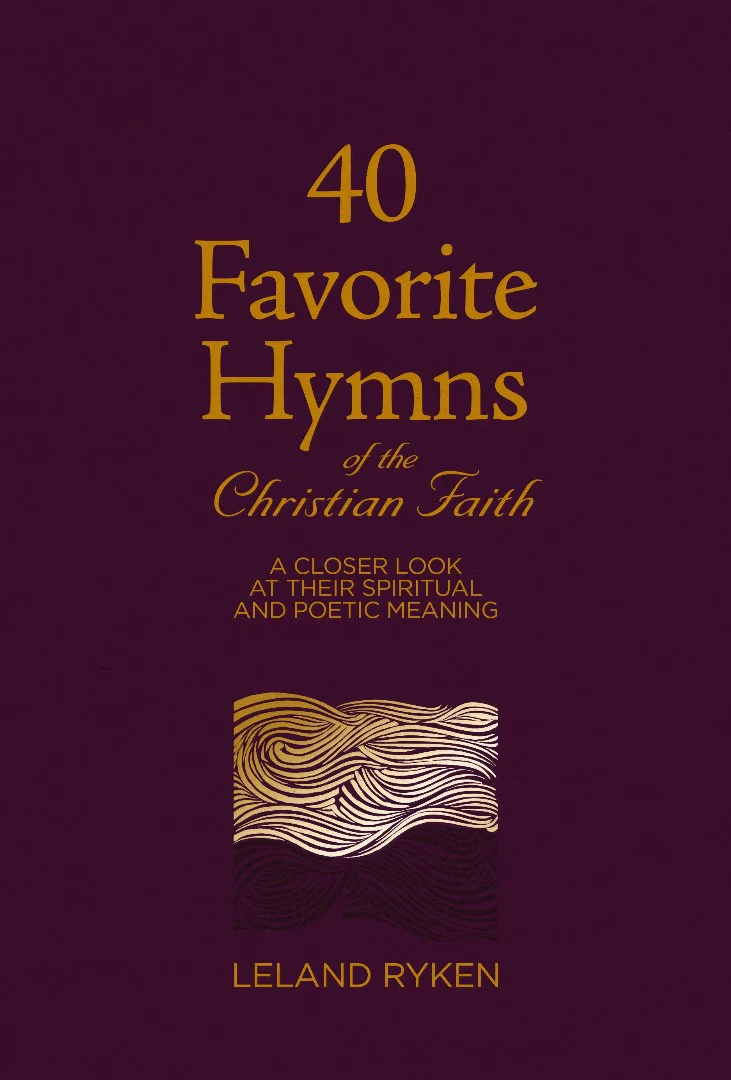
Leland Ryken
Reviewed by: Derrick J. Vander Meulen
Forty Favorite Hymns of the Christian Faith: A Closer Look at their Spiritual and Poetic Meaning, by Leland Ryken. P&R, 2022. Hardcover, 152 pages, $11.04. Reviewed by URCNA pastor Derrick J. Vander Meulen.
Have you ever sat down after singing a song in worship and wondered what it was you had just sung? That can easily happen when the song was moving along at such a pace that you were not able to give meaningful thought to the words. Or because you were so focused on the beautiful music that the words just slipped by. Or, of course, it might simply be because your mind was wandering elsewhere. This happens to all of us.
Dr. Leland Ryken, emeritus professor of English at Wheaton College, understands this reality and has authored several helpful anthologies to encourage us to take the time to read, understand, and savor the poetry of hymns. His earlier anthologies are Forty Favorite Hymns of the Christian Year, and Forty Favorite Hymns of the Christian Life. Added to these is his most recent Forty Favorite Hymns of the Christian Faith.
In this latest anthology, the forty hymns that Ryken chose include such beloved ones as “Great Is Thy Faithfulness,” “Jerusalem the Golden,” “The God of Abraham Praise,” and “Praise My Soul, the King of Heaven.” For each hymn, he briefly tells about the poem’s author and the real-life situation that motivated the author to write. In addition to this historical background, he discusses those features that make the literary work poetic, including its meter, phrasing, and stanzas.
In addition to the fact that I personally appreciate good hymnody, I enjoyed reading through this anthology because I found the diversity of the poets fascinating. They include men and women, homemakers, pastors, and even a couple who were converted under George Whitefield’s ministry. They include well-known names, such as Charles Wesley and Fanny Crosby, and others with whom I was unfamiliar. While most lived in the nineteenth and twentieth centuries, Ryken included Bernard of Cluny who authored “Jerusalem the Golden” and lived sometime around the twelfth century. Several wrote their poem in the midst of suffering and trials. But whether through personal illness, a loved one’s death, or unrequited love, these poets found comfort and solace in the great truths of Scripture and in the faithfulness of God.
Ryken helpfully unpacks the wording, phrasing, themes and sub-themes of the poetry. He shows how the poet skillfully strengthened and augmented the main theme with each successive stanza. As the book’s subtitle indicates, Ryken truly gives us a closer look at the spiritual and poetic meaning of these hymns.
Such helpful information that Ryken relates for us is sufficient in itself to recommend this work. However, it is because he is able to relate that information devotionally that I heartily recommend it. Ryken not only tells us where the poet found comfort, solace, joy, and peace, but he brings us there. For each hymn, he ties the main theme of the poetry to a specific passage of God’s Word so that we, with heart and voice, want to join in and sing to the glory of God.
June 15, 2025
June 08, 2025
June 01, 2025
Anxiety: Finding the Better Story
May 25, 2025
April 27, 2025
The Devoted Mind: Seeking God’s Face in a World of Distraction
April 20, 2025
April 13, 2025
© 2025 The Orthodox Presbyterian Church